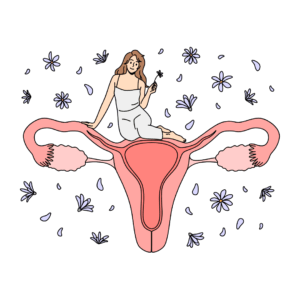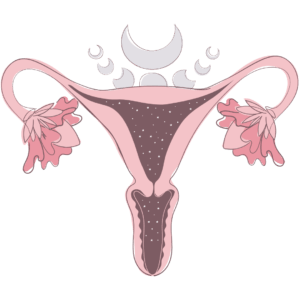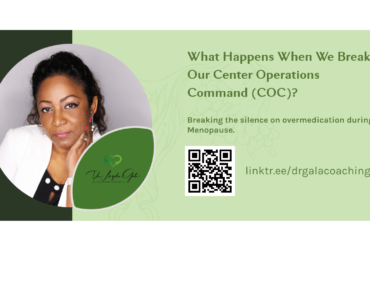 By Angela Gala
By Angela Gala
Contributor: Demiclare DeLa Cueva
04/06/2022
The spring is when we can think of any re-blooming. It’s mating season in the animal world, and the leaves turn their brightest hue while plants bloom. Isn’t there, by any chance, a re-blooming in humans as well? Then I recalled…well, I landed menopause in spring! I heard there was something about women frequently hitting menopause at this time of year. It’ll be great to learn more about women’s re-blooming (meaning menopause) seasonality.
While your period may have changed over the last several years during perimenopause, you don’t technically hit menopause until your monthly period has stopped entirely. This means your body stops producing eggs for fertilization. There’s no more menstruation without the shedding of an unfertilized egg every month.
That’s where Mother Nature enters, which may play a much larger role in determining when a woman ends the reproductive phase of her life than previously thought. A new study suggests that the start of menopause may be linked to seasonal weather patterns.
Researchers found that the number of women reporting their first missed period peaked in the Spring and Autumn months to a lesser degree. The study appears in the current issue of Human Reproduction.
Researchers say seasonal variations in the reproductive functions of wild animals are well known, but this is among the first studies to look at their possible effect on humans.
Findings from the paper by Harlow et al., in this issue of menopause, discussing the longitudinal analysis of prospective monthly menopausal symptom reports from 955 participants in the SWAN study, provide unique data about the seasonality of hot flashes, night sweats, and sleep problems across the menopausal transition (MT).
Quoting another study finds, “The seasonality we found seems to support the influence of environmental factors on female human reproductive functions even when they are declining,” according to a researcher from the University of Pécs in Hungary in a news release.
How It May Be Tied to Seasons
Researchers surveyed 102 women treated at a menopause clinic in Hungary and asked them about the month of their first missed period. Seventy-two women remembered the exact month their menopause process started, and 30 could remember only the season.
 Researchers say the results revealed seasonal variation in the start of menopause, with a peak after the Vernal (spring) Equinox and a smaller peak after the Autumnal Equinox. Amazing, right?! The fewest women reported starting menopause in the summer and winter months.
Researchers say the results revealed seasonal variation in the start of menopause, with a peak after the Vernal (spring) Equinox and a smaller peak after the Autumnal Equinox. Amazing, right?! The fewest women reported starting menopause in the summer and winter months.
Researchers say more study is needed to understand this relationship between the seasons and the start of menopause. But they suggest that melatonin, a hormone that plays a role in the circadian rhythm or 24-hour body clock, could be involved in the process. Another study shows that a peak in hot flash reports was observed in July, while January had a trough in hot flash reports.
Like some aspects of reproductive function, menopausal symptoms appear to exhibit seasonal variation, according to new research from Menopause: The Journal of the North American Menopause Society. The study assessed the impact of season and proximity to the final menstrual period (FMP) on the frequency of symptom reporting.
Women had 66% greater odds of a hot flash at their seasonal peak than their seasonal minimum in both the unadjusted model and the model adjusted for smoking, race, age at FMP, and body mass index. The corresponding odds for night sweats and sleep problems were 50% and 24%, respectively.
Pretty impressive, right?! ing








This is an absolutely fascinating post on menopause and if seasonal changes could have an effect on the start of menopause. I would never have thought that there is a link between seasonal changes and menopause, so reading this has been a revelation, and even more so to see that Spring time is the highest season for the start of menopause.
Do you know if there is also a link between seasonal changes and having your first period? Thank you for sharing.
Glad you enjoyed the post, Line!
There might be a link between seasonal changes and first cycle menstruation. Thank you for suggesting this topic; I’ll look over it to gather more information. Did you know you could do a little research and find some interesting facts about our reproductive life cycles? For example, you may run a small survey amongst your friends and learn about their experiences.
We’re happy to hear that reading this article has been an eye-opening experience for you!
I’m not very knowledgeable about this topic, but it’s certainly good to know these facts about menopause. The seasons have a lot of influence on various changes in the body. When it comes to menopause I think women rarely talk about it and we need to talk more about this.
Thank you for your review Bojana; I’m glad to hear that you found the article interesting and informative.
I completely agree with you on the need to talk more about menopause! We’re working hard to make sure we have a range of articles on this topic so that all women have access to information they may not otherwise find or know about.
Hi Angela,
What an eye-opening article. I think it may be surprising for a lot of people to even conceive of the thought that seasons can affect the start of menopause.
Thanks for the detailed information about Autumnal Equinox, that was an eye-opener for sure.
I can´t wait for more research on this topic. It would be interesting to hear the new information and findings of this.
Cheers,
Dana
Hey. Dana!
Thanks so much for reading our article and taking the time to leave a review. I’m glad you found it eye-opening! We’re always happy to share new research on menopause. I’m passionate, and I aim to raise awareness about this topic in our communities. Unfortunately, menopause has always been surrounded by uncertainty and mystery. There is a lot more you can find in my blog. I encourage you to explore; you’ll find fascinating themes about this fantastic stage of women’s life.
Again your feedback is very much appreciated!
Hi Angela,
That’s an interesting article. I don’t remember if I get menopaused in spring, winter, or whatever season. But that’s fascinating. I am in the 50% of people who have issues sleeping at night. I don’t sweat, though, which is great. I do have a question. How long are menopaused women supposed to feel the symptoms? I hope I am not going to feel that way for the rest of my life:) However, are there supplements or sports that could alleviate those symptoms?
Thank you very much!
Hi Daniella,
Thank you for your review and question. Perimenopause (the transition phase to menopause) can last from a few months to ten years, so it’s hard to say how long one will feel the symptoms. Many different factors can affect how long this phase lasts, including age at diagnosis, family history of perimenopause duration, lifestyle choices like smoking or drinking alcohol, and surgery with removal of ovaries. The good news is there are things we know about managing these symptoms: exercise helps with mood swings (especially weight-bearing); acupuncture has been found to relieve hot flashes; natural supplements such as black cohosh may help with some of the more common symptoms like night sweats; mindfulness and other mental fitness practices are associated with a significant reduction of all perimenopausal symptoms. Finally, hormone replacement therapy is the choice to achieve relief from severe symptoms. I’ve been fortunate to see many women naturally regain their energy and vitality in my integrative practice. I hope this information is helpful!